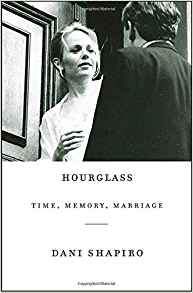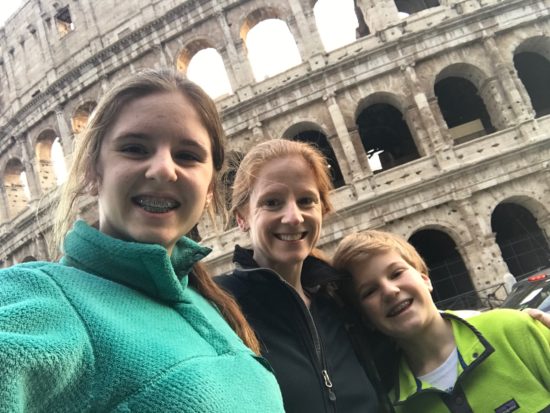
I was thrilled to read an early copy of Dani Shapiro’s Hourglass: Time, Memory, Marriage, which was also an easy choice for my most-anticipated book of 2017 on Great New Books. I’ve read all of Dani’s books, and I love her fiction and her memoir both. Hourglass, in both tone and structure, reminded me most of her most recent books (and my favorites), Devotion
and Still Writing
. It is a series of small pieces, both memories and essay-style reflections, delivered not in chronological order but in a way that makes seamless sense and in which the ways in which the stories jostle up against each other means as much as the content of each.
Hourglass, for me, is most fundamentally about what memory really means. Dani explores this topic – which is central to my life – in multiple arenas: her own life, her marriage, with others she knows. The progression of her husband’s mother’s Alzheimer’s is a salient and powerful reference point, and serves as another illustration that time and memory can evolve in ways that are neither linear nor easy.
Like all of Dani’s books, I underlined copiously and wrote in the margins of Hourglass as I read. She refers to other quotes, literary works, and passages, which is something I love in other books, because it makes clear that the single volume I’m reading is a part of a larger, longer, broader conversation. Which Hourglass (and all of Dani’s works) is. In particular, Dani refers to Wendell Berry’s In the Country of Marriage, a poem I have shared here before and return to again and again. Matt and I celebrated our 16th anniversary last fall, and I relate intensely to how Dani describes the landscape and vocabulary of long(ish – I realize 16 years, while it feels like an eternity, is not yet truly long) marriage. Towards the end, she writes,
But I can no longer say to M. that we’re just beginning. Let everything happen to you: beauty and terror. That solid yet light thing – our journey – is no longer new. He identified my mother’s body. We took turns holding our seizing child. We have watched his mother disappear in plain sight. We have raised Jacob together. We know each other in a way that young couple couldn’t have fathomed. Our shared vocabulary – our language – will die with us. We are the treasure itself: fathoms deep, in the world we have made and made again.
Dani’s reflections on marriage were reassuring and resonant to me. She returns to a phrase M. said long ago, “I’ll take care of it,” unpacking the various ways that feels true and not true over the years. This triggered a memory for me, and that very action is at the core of why Hourglass is so powerful – isn’t that how life works? We hear or experience something that sets off a recollection, and the collision between reality and the past enriches and informs how we live our daily lives. This is the process that Dani so beautifully captures in Hourglass. What I recalled, when M. said he’d take care of it (whatever it is), is a conversation with my father about the Dixie Chick’s lyric that I wanted someone to “keep the world at bay” for me. Of course that is impossible, and my reading of Hourglass, and of Dani’s return to M.’s comment, tells us that in fact only we can “take care of” life’s true tasks for ourselves.
The scenes accrue in Hourglass, and the reader skips back and forth in time, witnessing Dani’s mother-in-law’s dementia and the growing of Dani and M’s son. The pieces add up to nothing less than an adult life, and while this beautiful, lyrical book has many messages one of my favorite and the most powerful is the way that we are all the selves we’ve ever been, and we carry our pasts with us as we walk through the world.
I understand that I am comprised of many selves that make up a single chorus. To listen to the music this chorus makes, to recognize it as music, as something noble, varied, patterned, beautiful – that is the work of a lifetime.
More than anything else, Dani Shapiro’s writing makes me feel less alone in this life. She brings to life that great C.S. Lewis quote, “we read to know we are not alone.” I’ve told her this many times, and Hourglass is no exception.
There is no other life than this. You would not have stumbled into the vastly imperfect, beautiful, impossible present.
I read these sentences and blinked away tears. Yes. How is it possible that Dani is speaking directly to me? Of course, that reaction is a testament to her extraordinary skill: a great many readers feel this way, and they should. Dani touches something universal in Hourglass, in her description of time’s elasticity and the ways that the past lives on in the present. I loved this book. I know you will too.


